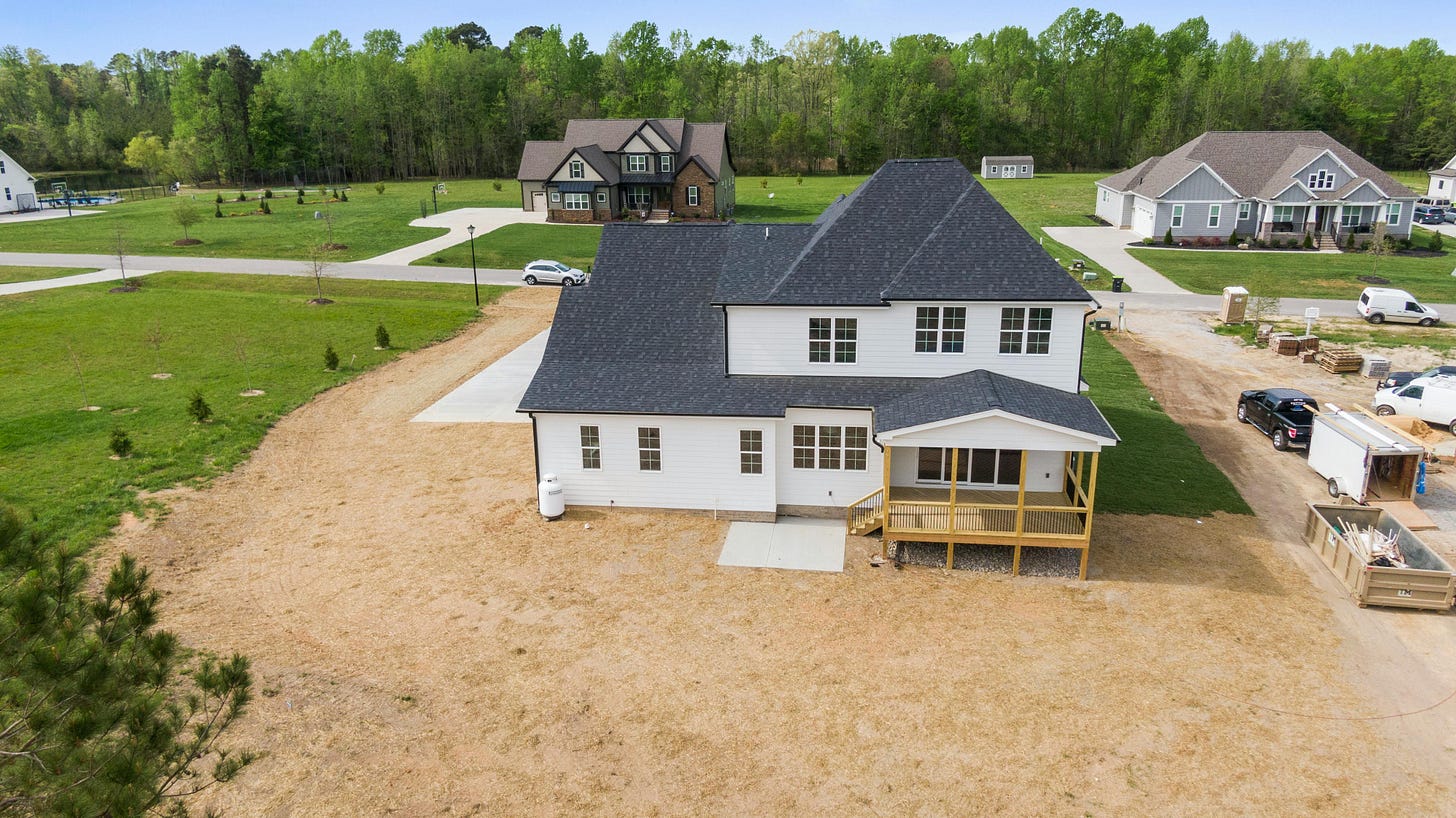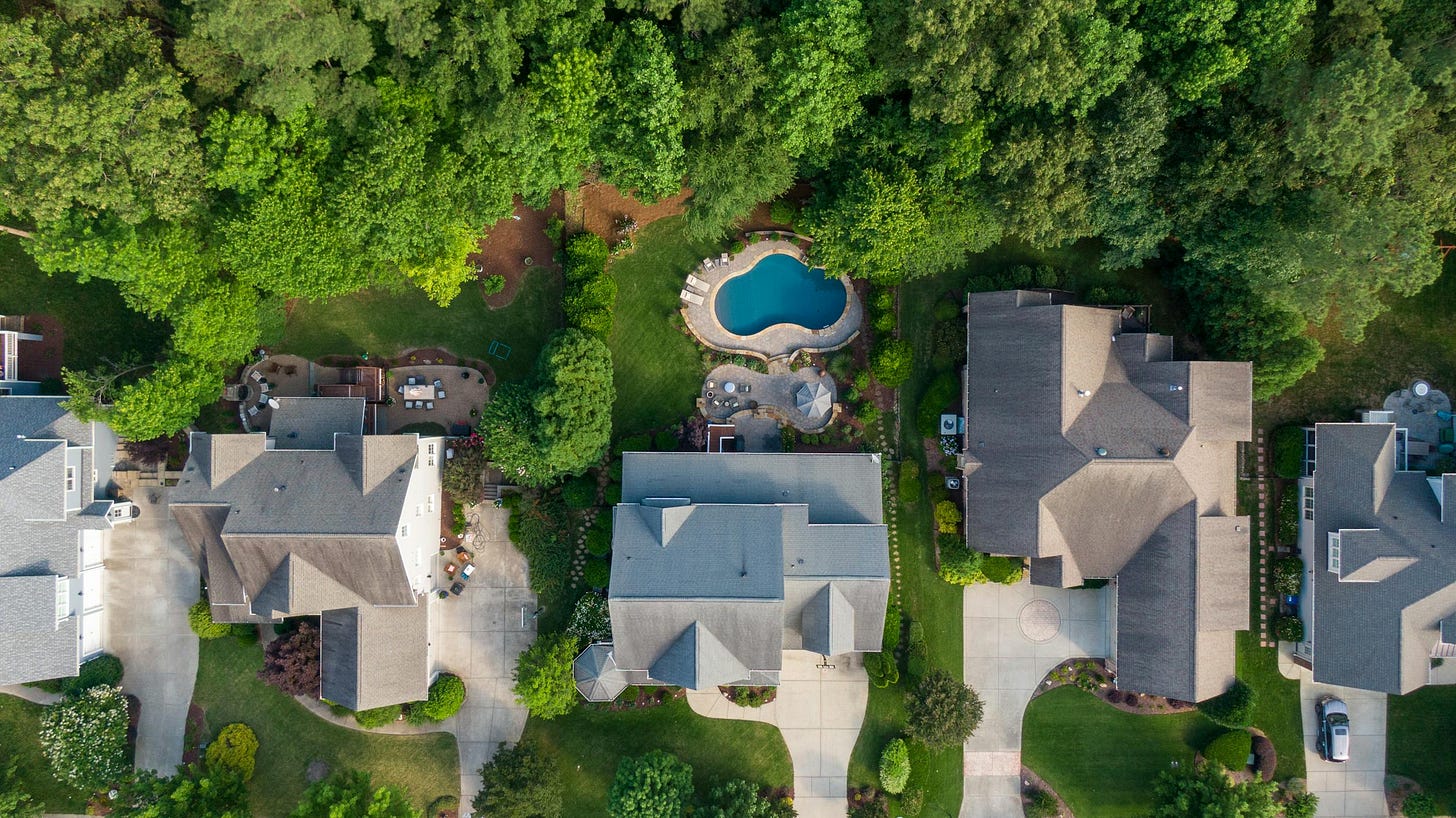The surveillance age has well and truly arrived
Meet the new nosey neighbor: a drone in the sky sent by your insurance company.
All of us have secrets hidden from view in our backyard.
For some, it’s grandpa’s old jalopy — an aspiration to restore to former glory when life stops being so hectic. For others, it’s that cache of old furniture under tarp that’s worth… well, something. Others have an old water heater or washing machine that hasn’t yet made its way onto the back of a truck for a trip to the dump. Or a clandestine chicken coop with a few birds; they’re quiet enough that nobody really knows… or cares, frankly.
None of these have ever been a problem before, right? Well, the new nosey neighbor isn’t next door... It’s in the sky.
A recent exposé in The Wall Street Journal revealed that insurers are using aerial drones, high-altitude balloons, manned airplane flights, and probably even (though it’s not explicitly alluded to in the article) satellite imagery to find every reason under the stars to increase insurance premiums, or better (for the risk assessors) simply drop customers from insurance coverage altogether.
Nearly every building in the country is being photographed, often without the owner’s knowledge. Companies are deploying drones, manned airplanes and high-altitude balloons to take images of properties. No place is shielded: The industry-funded Geospatial Insurance Consortium has an airplane imagery program it says covers 99% of the U.S. population.
Only a few years ago, Patrick Van Brussel, research director at International Data Corp., boasted in another WSJ article:
All these technologies are about augmenting the capacities of the so-called knowledge workers… Drones and robots make insurance more effective, more efficient and safer. Drones, for example, can quickly inspect a damaged roof and transmit images back to a claims system without sending an adjuster into a building that might be compromised… Insurers will continue to embrace drones, robots and other technologies as companies find new uses for them.
Ah yes, “new uses”! What could go wrong?
Once they landed on the shores of the New World, the conquistadors stopped at nothing until they had it all, decimating everything that stood in their way to achieve that goal. They didn’t ask permission. They didn’t acknowledge the humanity of those already present in the lands they invaded. They were simply voracious.
It appears this same mentality dominates everything about modern living in the West — technology companies and the government ARE the new conquistadors. No longer will there be secrets or mysteries. The domination of technology is now so ubiquitous, your home is no longer yours, your personal space is no longer yours, your government is no longer yours. And you’ll be reminded of it each time you step out of line!
Increasingly unpredictable weather and questionable decisions by owners on, say, deferred maintenance, means that home insurers are looking to “de-risk” their property portfolios — which is basically a polite way of saying ‘we’re keeping as much money as we can in our coffers and finding every reason not to pay out.’
Is it any surprise, then, that algorithms are not your friend? WSJ confirms this:
The array of photos is being sorted by computer models to spy out underwriting no-nos, such as damaged roof shingles, yard debris, overhanging tree branches, and undeclared swimming pools or trampolines. The red-flagged images are providing insurers with ammunition for non-renewal notices nationwide.
And if the insurers are using high-tech to their advantage, it’s not long before cash-strapped local governments also use the technology to get you to pay out. Those new skylights on the backside of your home — you know the ones you probably should have had a permit to install but decided against since they aren’t visible from the street — are now completely visible and taxable thanks to drone imagery. Same with the extra large deck and jacuzzi you recently installed. Or the ‘bunkie’ you built as a man/woman cave.
Make no mistake, the mesh of the control grid is tightening. The question is: can we resist?
That’s a hard one because ultimately, we all need a place to live. And we live in a litigious society, so abandoning enslavement to home insurance is a risky endeavor for all but the biggest gamblers.
Sadly, it might be that this predicament is yet another move on the chessboard pushing the vast majority of people towards their ultimate checkmate. When we get there — and it doesn’t seem that far away now — there will be no other moves except to capitulate. Like the ancient civilizations of the new world, we will have to accept our enslavement or worse, become extinct.







You ask, "Can we resist?" My hopeful and optimistic nature would say yes, there are some things we can do now. Turn off the TV. Don't trust the mainstream media, de-google your phone, use a VPN, warn your friends and neighbours what's happening, take care of your own health and keep away from hospitals, work in the garden and keep fit, optimize vitamin D, choose a healthier lifestyle and keep in mind that they want you afraid for easy manipulation, so embrace a freedom-loving community for support. Be curious and optimistic and grateful that you are part of God's and Nature's ultimate plan. Shine the light on truth.